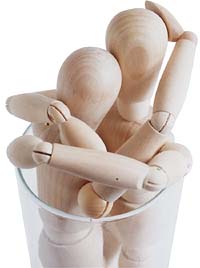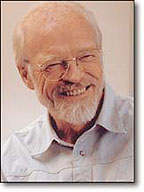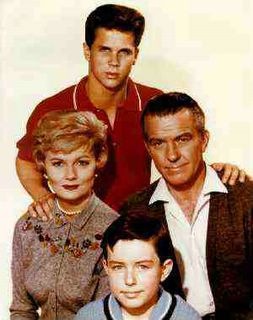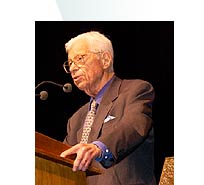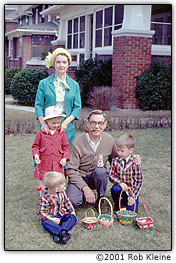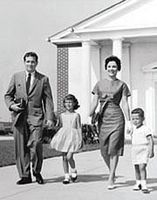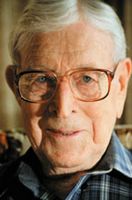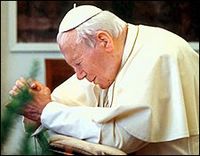
Pope John Paul II
Musings below are based in part on this.
Although I am a confirmed protestant, Pope John Paul II continues to be a man who grows in my respect, almost with each passing day. And now, with his declining health, the world is watching as he becomes more infirm, more feeble, and well, less cool.
I mean if he were a cool Pope, he would be younger, dress better, say cool things, be funny, and not wear that zuchetto (skull cap) thingie. Come on please! And, oh yeah, the dude would retire at some mandatory age and go fishing in the Italian Alps. Like all of us western types you know, we are only useful for a season in life, and then it is time to move on. Mandatory retirement and then, off to the Old Pope's Home. Casa De El Papo Retirementamundo. Happy Acres. The Pope Farm. Get on with it old fella, out the door for you! Cash in on the 401k, baby.
But no. He stays. He goes in and out of the hospital. And he won't retire. Not this Pope. And perhaps, just maybe, this decision is infused with some of the things of the Kingdom of Heaven. I posted recently about this. Perhaps Eugene Peterson and the Pope have it right. Perhaps the Kingdom of Heaven is an upside down thing. Perhaps we, with our western civilization view of things, just don't understand this.
From Catholic theologian George Weigel, in the Washington Post, this:
It seems to me the Pope gets it. Much about this life is learning how to die, in so many ways. And so, Pope John Paul looks to us to be "out of it", infirm. We don't like this, it is not cool, it makes us uncomfortable. And perhaps, it is in these places where God dwells.A few days ago in Rome, when I asked Nigerian Cardinal Francis Arinze what this phase of the remarkable pontificate of John Paul II meant, the cardinal suggested that, from his hospital bed, the pope was putting some serious questions on the world's agenda -- does suffering mean anything, or is it simply an absurdity? Does the suffering contribute anything to the rest of us? Is there dignity in old age?
In Cardinal Arinze's mind, the example of John Paul II offered an answer to those questions. Yes, suffering can have meaning. Yes, that suffering can teach the rest of us: It reminds us that we cannot control our lives, and it elicits a compassion that ennobles us. Moreover, the cardinal suggested, John Paul II, in his weakness and suffering, was a tremendous encouragement to the elderly, the sick, the disabled and the dying, who find strength and hope in his example.
The world has missed a lot of Karol Wojtyla's story in his 26 years as pope, because the world tries to understand him in political terms, as another power player on the global stage. There's no doubt that John Paul II has been the most politically influential pope in centuries. But that is not who he is, or what he's about, at his deepest level. His two recent hospitalizations and his unembarrassed struggle to live out the commitment to service that he made at his election in 1978 should remind everyone that this man is, first and foremost, a Christian pastor who is going to challenge us with the message of the cross -- the message of Good Friday and Easter -- until the end.
As Hanna Suchocka, the former Polish prime minister, described the pope to me recently, "He is living his via crucis," his way of the cross. It's not something the world has watched a pope do for a very long time. We should recognize it for what it is, and be grateful for the example.







